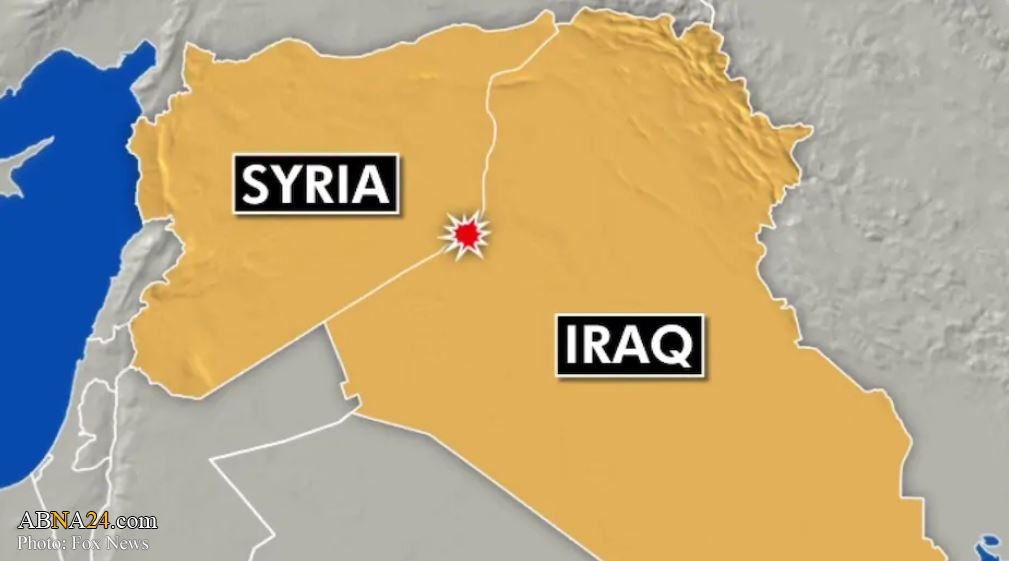AhlulBayt News Agency (ABNA): On Monday morning, the US once again carried out airstrikes in the positions of the Resistance forces on the Iraqi-Syrian border area. This time, the US Democratic President has ordered the strike, demonstrating that US leaders are not different when it comes to violating the Iraqi and Syrian sovereignty and committing crimes against the two nations.
In this attack, in which the reports on the number of the killed and wounded varied, the US government, in an apparent move to justify its crime against the Popular Mobilization Forces (PMF) which are an official part of the Iraqi Armed Forces, in a blame-shifting move called the strike a "message" to Iran, saying that Washington will not leave unanswered attacks on the US forces and positions in Iraq.
But many analysts argue that the US stance is an utter lie and that the raid was pre-planned.
Persuasion at home, blame-shifting abroad
The US government's claim that the attack on the PMF base in Abu Kamal, Syria, was a response to Iran shows the US desperation with the developments in Iraq and Syria, with the White House being at a point of no return. As a result, Washington takes any action to delay the course of change in order to avoid an inescapable defeat.
Two weeks ago, a suspicious attack was carried out against a US military base in northern Iraq. The US immediately blamed Iran and the PMF units. In reaction, the Iraqi resistant groups' commanders published an official statement saying that they did not attack Erbil airport, which hosts American troops.
After the Iraqi parliament passed a resolution last year on foreign troops' expulsion from Iraq, the US began to face a legal obstacle for its military presence in the Arab country, amid growing public demand for the Americans to withdraw. Except for some parts of the Iraqi government, a majority of the political groups have already launched a heavy pressure campaign to force the Americans out.
In this difficult situation that even Washington's efforts to revive ISIS to circumvent the parliament bill under the ruse of anti-terror fight have failed, Washington has no choice but to attribute the attacks to Iran to shift the blame and escape accepting the defeat and Iraqi public aversion for the US military stay in Iraq.
On the other hand, the attack on Iran-allied forces' base in Syria will inevitably reduce pressure coming from the Israeli regime and its extensive lobbying in Congress and the White House and show a strong picture of Biden and his resolve to defend the US interests and allies amid criticism flowing against the White House from the Republicans after attacks on the US facilities and military convoys over the past few weeks in Iraq.
Attacking ISIS's key enemy
In the years following the defeat of the self-proclaimed ISIS caliphate in Iraq, concerns about the terrorist group's reorganization and activation of its sleeper cells and remnants were unavoidable.
In recent months, as Iraqi voices calling for the US expulsion rose, the terrorist group ratcheted up its activities, and there have been several bombings and other terrorist operations to portray Iraq insecure. Apparent enough, the ISIS role in destabilizing Iraq and Syria and also subjecting the Tehran-Baghdad-Damascus-Beirut security belt to challenges fall in best interest of the US and the Israeli regime.
Aware of evil plan to revive ISIS, the Resistance camp in the past few months launched operations, successfully neutralizing re-rise attempts in central and northwestern Iraq. To repel the threat, the Iraqi groups cooperated with the Syrian government and Lebanese Hezbollah, a powerful anti-terror actor in the Syrian war.
Glaringly obvious, the strike was conducted to destroy the power to thwart ISIS re-emergence attempts. Last week, Washington said it was building a military base on the Iraqi soil and close to the Iraqi border. The construction reveals the significance of the region in the White House military strategy in pursuit of its plans in Syria and Iraq.
/129

